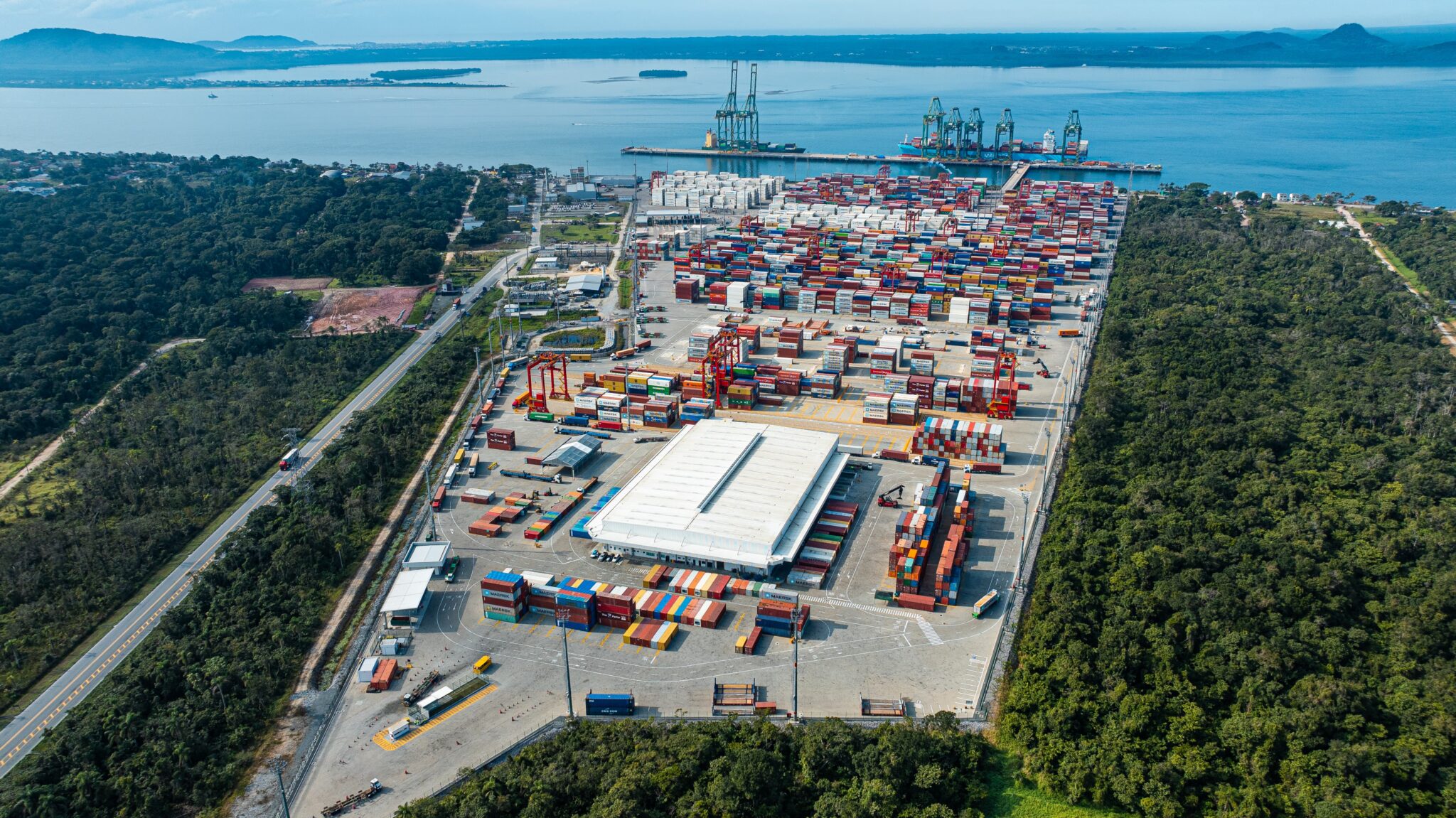Porto Itapoá in Brazil avoided the consumption of over 1.18 million litres of fuel in 2024, equivalent to more than 4,000 tons of greenhouse gases that were not released into the atmosphere. This achievement was made possible by investments of over R$ 160 million that the Terminal made in expanding and modernizing its fleet of equipment.
In 2023, Porto Itapoá invested in the acquisition of 10 hybrid RTGs, which began operating in 2024. These machines consume three times less diesel than conventional models, resulting in savings of 890,000 litres of fuel. Sergni Pessoa Rosa Jr., Director of Operations, Technology, and Environment at Porto Itapoá, emphasized the importance of this change: “The new RTGs are also remotely operated, providing greater comfort and ergonomics for the operator. We are the first Terminal in South America to have this technology,” he stated.
In 2024, the terminal expanded its sustainable fleet with the purchase of 20 electric Terminal Tractors. Since the start of their operation in August 2024, these vehicles have prevented the consumption of 290,000 litres of diesel. Since they do not use fossil fuels, the electric Terminal Tractors represent a significant advance in reducing the terminal’s carbon footprint. “Today, we have the largest fleet of electric Terminal Tractors in Brazil,” highlights Rosa Jr.
Savings in Lubricating Oil and Filters
In addition to reducing diesel consumption, Porto Itapoá also implemented practices that extended the lifespan of lubricating oils and optimized preventive maintenance. These actions, combined with fleet modernization, resulted in savings of 15,000 liters of lubricating oil and 500 filters. “Extending the life of lubricants and optimizing maintenance are examples of how small changes can have a big impact. These practices not only reduce costs but also minimize waste generation,” explains Sergni Pessoa Rosa Jr.

The used oil is sent to a company that recycles the material, which is then reintroduced into the market for other purposes. “Even with proper disposal, it is important to reduce overall consumption, making the supply chain more sustainable,” the director notes.
Environmental Leadership
In January, Porto Itapoá reaffirmed its commitment to sustainability and innovation in the port sector. At an event held at B3 in São Paulo, the Terminal’s CEO, Ricardo Arten, signed the Pact for Sustainability, a pioneering initiative by the Ministry of Ports and Airports (MPor), led by Minister Sílvio Costa Filho. Porto Itapoá is one of the leading examples of sustainability among private ports in the country.
The Pact is part of the launch of the new Sustainability Policy for the ports, airports, and waterways sectors. The initiative establishes strict criteria for awarding recognition seals — Bronze, Silver, Gold, and Diamond — to companies that adopt practices based on ESG pillars (environmental, social, and governance). Requirements include reducing greenhouse gas emissions, developing social and environmental initiatives, and aligning with global goals of the 2030 Agenda.
Porto Itapoá is already widely recognized as a benchmark for sustainability in the Brazilian port sector, with a score of 98.33 in the Environmental Development Index (IDA) by National Waterway Transport Agency (ANTAQ). This performance earned the Terminal the Via Viva Award as the most sustainable private port in the country. It also won, for the third consecutive year, the Gold Seal from the GHG Protocol for its commitment to transparency, accuracy, and reducing greenhouse gas emissions. Additionally, it received the international I-REC certification, confirming that 100% of the electricity used in 2023 came from renewable sources.
similar news
The post New Port Equipment Reduces Fuel Usage appeared first on Logistics Business.


